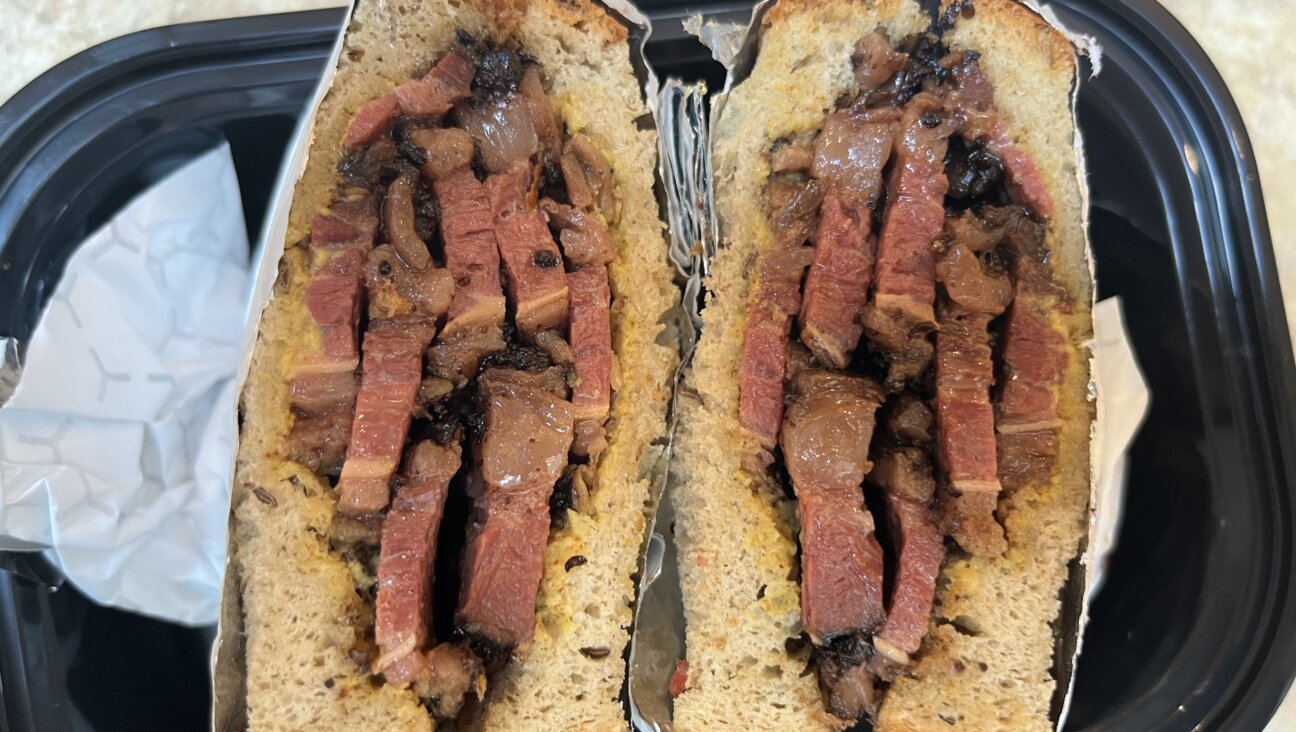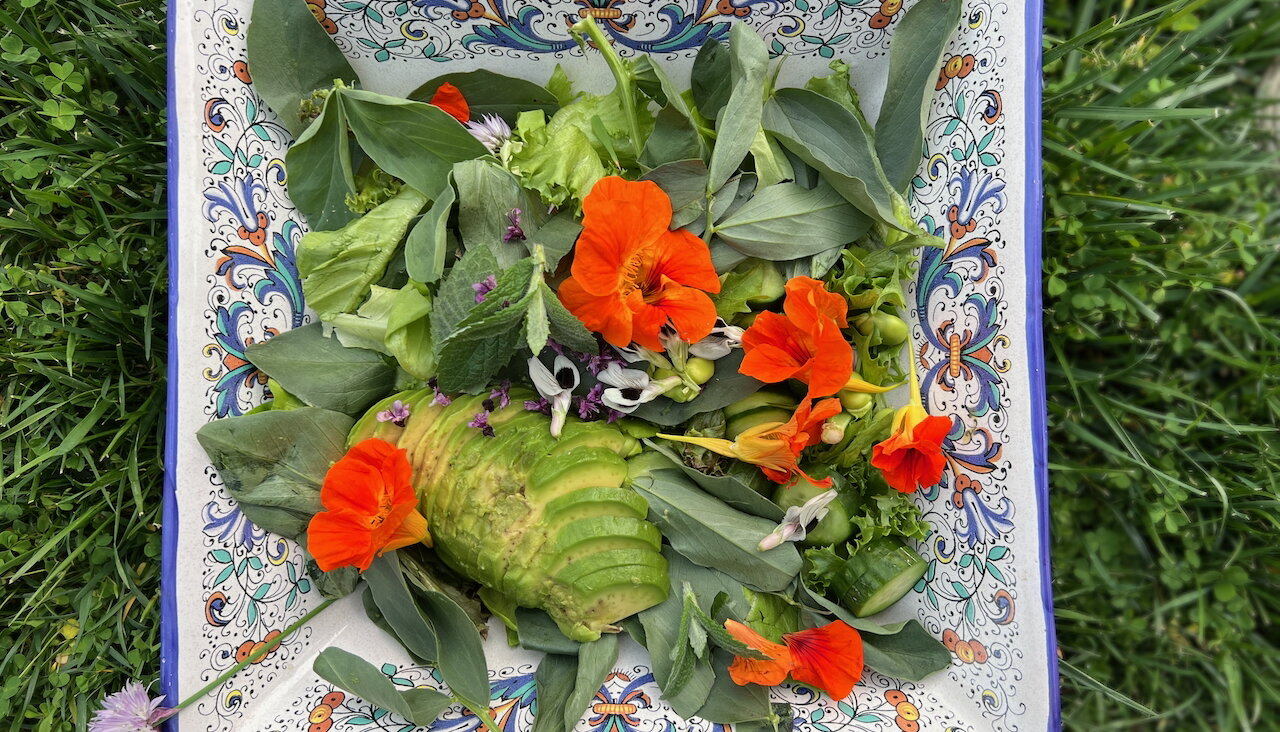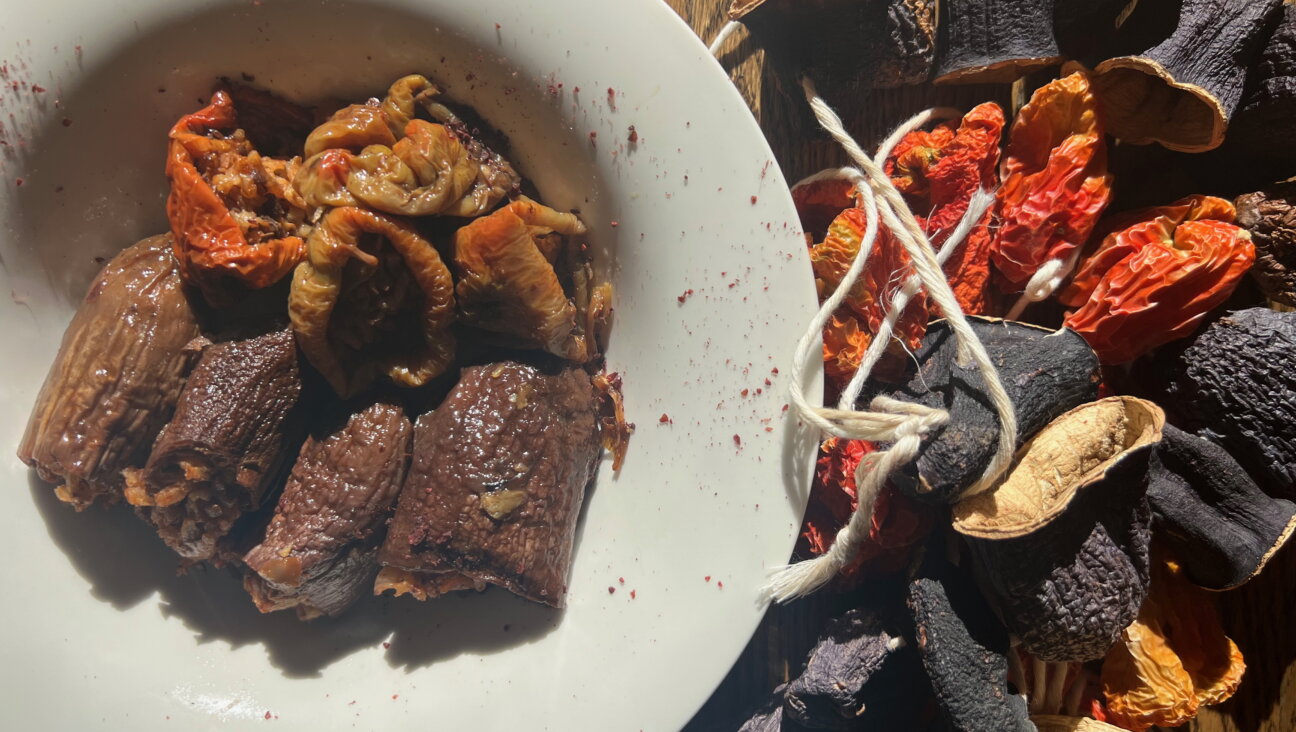The Oldest Matzo Maker in France

wikicommons
(JTA) — For most Jews, matzah season comes once a year. But for Jean-Claude Neymann, matzah, or “pain azyme” in French, is a defining family tradition.
Neymann runs the oldest matzah bakery in France, located in the town of Wasselonne near the German border. The family company, Etablissements Rene Neymann, traces its matzah-making tradition to 1850.
“I’m the fifth generation of my family to bake matzah here in Wasselonne,” Neymann said.
Walking along the steep, cobblestoned streets of Wasselonne, a city of nearly 6,000 people at the foot of the Vosges Mountains in northeastern France, is like stepping into a Grimm’s fairy tale. Timbered facades look more German than French, a reminder that Alsace and Lorraine have been shunted back and forth between two countries that regularly warred with each other in the not-so- distant past.
Salomon Neymann, a peddler and the father of this unleavened-bread dynasty, set up his first bakery in nearby Odratzheim, where he began to bake Passover matzah for his family and the local Jewish community. His matzah became popular, and by 1870 he and his son Benoit moved the factory to larger quarters in Wasselonne, a market city with an industrial district that also had the advantage of being the site of a flour mill.
Between 1870 and 1919 the Neymann family manufactured regular and shmura matzah in their factory, but Benoit Neymann’s youngest son, Rene, had bigger ideas for the company. In 1919 he industrialized production, changed the company name to Etablissements Rene Neymann and in 1930 began to market the wonders of unleavened bread to the non-Jewish public. It was a hit and sales grew.
After France fell to the Nazis in 1940, the bakery was shuttered and the Neymann family was forced into exile in southern France. Liberation came in November 1944 with the army of Gen. Phillipe Leclerc, and in 1948 Rene Neymann restarted the business.
The decades following World War II saw many changes in how people ate and shopped all over the world.
“Supermarkets started to replace traditional food markets, and eating a low-fat diet became fashionable,” Jean-Claude Neymann noted.
Robert Neymann, Rene’s son, seized the opportunities – he modernized and automated production, expanded the product lines and secured new distribution outlets.
With Robert Neymann at the helm, Etablissements Rene Neymann continued to extend its products and brands by manufacturing other types of matzah for different tastes and appetites: matzah made from rye and whole-wheat flours; bran matzah; spelt matzah; certified organic matzah. Even Neymann’s kosher for Passover matzah, under the supervision of the chief rabbi of Strasbourg, is made from an array of flours.
Jean-Claude, Robert’s son, took over the company in 1983.
“Regular matzah is still our biggest Passover item, but about 62 percent of our total manufacturing output is sold outside France,” he said. “We sell throughout Europe, to Morocco, South Africa, Japan and China. There’s a big market for crackers in those countries.”
Asked about the state of French Jewry and mounting concerns about anti-Semitism in the country, the proprietor of this storied French Jewish company was circumspect.
“I’m not afraid at this moment, but we can never know what people will do. Nobody imagined the Shoah could happen, but it did,” Neymann said. “We and our company are very well integrated into the life of Wasselonne and of France, but in people’s minds we are always the Jew.”
(Toni L. Kamins, a freelance writer in New York, is the author of “The Complete Jewish Guide to France” and the forthcoming ebook “The Complete Jewish Guide to Paris.”)
The Forward is free to read, but it isn’t free to produce

I hope you appreciated this article. Before you go, I’d like to ask you to please support the Forward.
Now more than ever, American Jews need independent news they can trust, with reporting driven by truth, not ideology. We serve you, not any ideological agenda.
At a time when other newsrooms are closing or cutting back, the Forward has removed its paywall and invested additional resources to report on the ground from Israel and around the U.S. on the impact of the war, rising antisemitism and polarized discourse.
This is a great time to support independent Jewish journalism you rely on. Make a gift today!
— Rachel Fishman Feddersen, Publisher and CEO
Support our mission to tell the Jewish story fully and fairly.
Most Popular
- 1

Fast Forward Ye debuts ‘Heil Hitler’ music video that includes a sample of a Hitler speech
- 2

Opinion It looks like Israel totally underestimated Trump
- 3

Culture Cardinals are Catholic, not Jewish — so why do they all wear yarmulkes?
- 4

Fast Forward Student suspended for ‘F— the Jews’ video defends himself on antisemitic podcast
In Case You Missed It
-

Fast Forward In first Sunday address, Pope Leo XIV calls for ceasefire in Gaza, release of hostages
-

Fast Forward Huckabee denies rift between Netanyahu and Trump as US actions in Middle East appear to leave out Israel
-

Fast Forward Federal security grants to synagogues are resuming after two-month Trump freeze
-

Fast Forward NY state budget weakens yeshiva oversight in blow to secular education advocates
-
Shop the Forward Store
100% of profits support our journalism
Republish This Story
Please read before republishing
We’re happy to make this story available to republish for free, unless it originated with JTA, Haaretz or another publication (as indicated on the article) and as long as you follow our guidelines.
You must comply with the following:
- Credit the Forward
- Retain our pixel
- Preserve our canonical link in Google search
- Add a noindex tag in Google search
See our full guidelines for more information, and this guide for detail about canonical URLs.
To republish, copy the HTML by clicking on the yellow button to the right; it includes our tracking pixel, all paragraph styles and hyperlinks, the author byline and credit to the Forward. It does not include images; to avoid copyright violations, you must add them manually, following our guidelines. Please email us at [email protected], subject line “republish,” with any questions or to let us know what stories you’re picking up.















